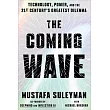From the author of New York Times bestseller The New New Deal, a groundbreaking piece of reportage from the trenches of the next climate war: the fight to fix our food system.
Humanity has cleared a land mass the size of Asia plus Europe to grow food, and our food system generates a third of our carbon emissions. By 2050, we’re going to need a lot more calories to fill nearly 10 billion bellies, but we can’t feed the world without frying it if we keep tearing down an acre of rainforest every six seconds. We are eating the earth, an ingenious phrase coined by Michael Grunwald, and the greatest challenge facing our species will be to slow our relentless expansion of farmland into nature. Even if we quit fossil fuels, we’ll keep hurtling towards climate chaos if we don’t solve our food and land problems. In this rollicking, shocking narrative, Grunwald shows how the world, after decades of ignoring the climate problem at the center of our plates, has pivoted to making it worse, embracing solutions that sound sustainable but could make it even harder to grow more food with less land. But he also tells the stories of the dynamic scientists and entrepreneurs pursuing real solutions, from a jungle-tough miracle crop called pongamia to genetically-edited cattle embryos, from Impossible Whoppers to a non-polluting pesticide that uses the technology behind the COVID vaccines to constipate beetles to death. It’s an often infuriating saga of lobbyists, politicians, and even the scientific establishment making terrible choices for humanity, but it’s also a hopeful account of the people figuring out what needs to be done--and trying to do it. Michael Grunwald, bestselling author of The Swamp and The New New Deal, builds his narrative around a brilliant, relentless, unforgettable food and land expert named Tim Searchinger. He chronicles Searchinger’s uphill battles against bad science and bad politics, both driven by the overwhelming influence of agricultural interests. And he illuminates a path that could save our planetary home for ourselves and future generations--through better policy, technology, and behavior, as well as a new land ethic recognizing that every acre matters.


 天天爆殺
天天爆殺  今日66折
今日66折 
























 博客來
博客來 博客來
博客來 博客來
博客來 博客來
博客來 博客來
博客來